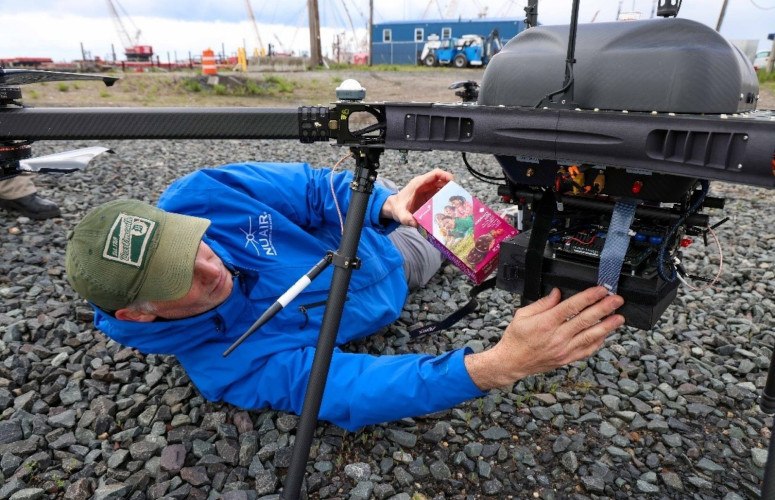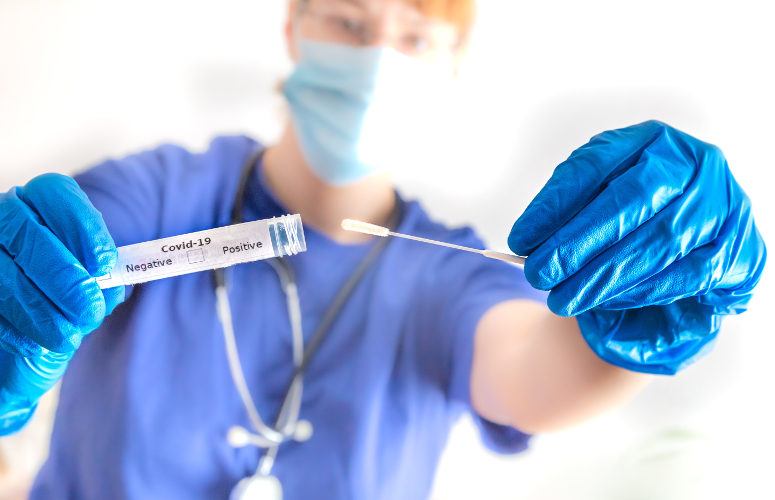
Cargo Drones to Deliver on Port Authority’s Ambitions for Package Routes
By Amanda Kwan, Media Relations, Port Authority of New York & New Jersey On Feb 23, 2024Mere months after the Port Authority of New York and New Jersey tested the viability of transporting goods across the Hudson River via a small uncrewed aircraft by flying a box of Girl Scout cookies between Brooklyn and New Jersey, the bistate agency has entered into a partnership with a drone cargo operator and a drone manufacturer to establish fixed drone routes that may one day be used to send around high-value cargo in the region.
The Port Authority’s cookie cargo demonstration in May 2023 proved successful drone delivery across myriad federal, state and local jurisdictions was possible. The agency put out a request seeking companies interested in making drone cargo delivery a reality in the region. Skyports Drone Services, a U.K. drone airline that operates survey, inspection and logistics drone services, and Elroy, an innovative drone manufacturer with a name inspired by the smartest member of the Jetsons cartoon family, were selected in late 2023 to help the Port Authority explore possible uncrewed aircraft routes to move small, high-value packages across the region quickly. The cookie cargo drone test flew the box of Raspberry Rallies from Brooklyn to Jersey City and back in a half hour, whereas a vehicle traversing between the same two locations would have taken up to 2 hours.
“It may seem like something from the Jetsons, but if drone cargo proves viable it may be a low-carbon way to move the most valuable items between New York and New Jersey,” said Seth Wainer, the Port Authority’s program director of innovation. “We are exploring routes and starting to look for customers who may be interested in investing in this space alongside us.”
Depending on demand, possible routes could include cross-Hudson travel or short distances between warehouses or fulfilment centers, known in the logistics industry as middle-mile cargo delivery. In New Jersey, it might mean flying over congested roads between a Newark Liberty International Airport warehouse and a hospital waiting for temperature-controlled medication or equipment for a time-sensitive medical procedure. The cargo – and therefore size of aircraft used – would be limited to small high-value payloads. Skyports, for example, currently provides drone delivery services for time-sensitive documents, medicines and vaccines, spare parts and tools, and mail in difficult-to-reach or complex environments.
The cookie cargo test that led to the new exploratory partnership was a product of the Port Authority’s staff innovation hub, a voluntary group of employees across disciplines and departments with a shared interest in testing new technology or finding new uses for off-the-shelf technology. The hub started in 2022 as a more formalized way for Port Authority employees to do what they’ve done for decades: find innovative solutions to challenging aspects of their work or to improve on the agency’s overall mission to keep the New York-New Jersey region moving. Throughout the Port Authority’s 103-year history, staff innovations have led to notable changes to commuting, such as the creation of E-ZPass for which the Port Authority owns the trademark. More recent employee-pitched pilots included autonomous vehicles for airport customers, an autonomous streetsweeper to help clean port property, an aquatic drone for berth inspections, a Space Act agreement with NASA to explore the next generation of flight in urban environments and a competition for regional high school students to reconsider use of the agency’s disused tunnel catwalks for faster emergency response.
The Port Authority’s employee innovation hub was cited in an New York City Economic Development Corporation report released in October 2023 as an example for New York City agencies seeking to nurture staff-developed innovations. The report by the Jacobs Urban Tech Hub at Cornell Tech and NYCEDC noted the Port Authority’s ideation process included an open pitch meeting attended by the agency’s senior leadership that gives employees access to executive decision makers and a $2,000 incentive for staff who successfully propose and execute a pilot.
To further encourage the work of the innovation hub, the agency has included $3 million to fund employee pilots in its 2024 budget, up from $350,000, which was seed money set aside for the hub’s first year in 2022.
“We already use drones for a wide range of purposes such as public safety or construction planning, but the sky is the limit for how else this – or any technology – can be applied for another use,” said Saleh Kojak, who manages the drone program for the Port Authority’s office of emergency management and coordinated the cargo drone pilot. “Technology changes quickly, and the innovation hub encourages employees to think more strategically and more creatively about what’s available now or soon that can be used toward a better future for everyone.”
To access more business news, visit NJB News Now.
Related Articles:





